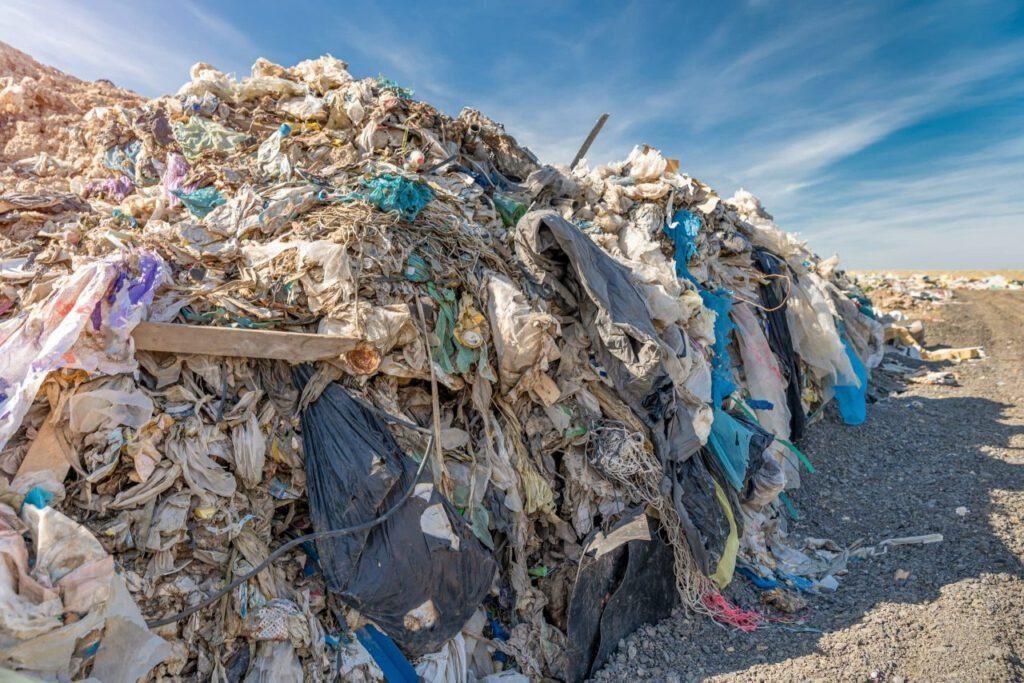What Is Leachate?
Leachate is a liquid that forms as water passes through landfills. Both household and industrial wastewater, as well as rainwater, end up in landfills. This is especially true when these sources are not treated properly prior to disposal or if they come into contact with landfill material containing organic pollutants (e.g., grass clippings or yard waste). Leachate from landfills is a major concern to surrounding communities.
The water can dissolve or pick up chemicals, acids, and particles from landfill material. Leachate can contain dissolved organic compounds, suspended solids, various acids, toxic metals, and disease-causing microorganisms.
How Leachate Contaminates Water
Leachate is dangerous because it seeps through the soil into local waterways where it contaminates drinking water supplies and spreads disease.
In fact, leachate from landfills is a significant source of pollution for the environment. In addition to containing organic pollutants, leachate can contain inorganic pollutants such as metals and salts; microorganisms; and parasites, viruses and disease-causing bacteria. These contaminants can quickly spread to nearby water sources if leachate enters local wells or groundwater.
Leachate is considered a hazardous material by the United States Environmental Protection Agency (EPA). It must be handled carefully in order to protect public health and the environment.
How to Tell If There’s Leachate in Your Water
It’s difficult to know if there’s leachate in your water without running comprehensive tests, here are a few things to look for if you think your water is unsafe:
- Ask local officials and well drillers, who may know if there is an increased risk of contamination in the area.
- Look for signs of nearby waste disposal sites, like vapors or strange odors coming from water faucets.
- Get a local building inspector involved to inspect your well and the plumbing system, if necessary.
If leachate is detected at any point in your home’s plumbing or well system, the entire plumbing system must be disinfected.
How to Mitigate Leachate Exposure
The most important thing you can do to protect yourself from leachate exposure is to avoid drinking water that may contain high amounts of contaminants. If there are any signs of contamination, talk with your local health department about ways to make sure your drinking water is safe.
Avoiding the consumption of contaminated water will decrease your risk of becoming ill, will limit any long-term health effects, and will allow you to reduce costs associated with leachate exposure.
The best way to avoid short- and long-term risks from leachate is to get rid of it at its source: landfills.
Leachate should be managed and monitored by landfills so as to not contaminate groundwater and other nearby water sources, but since leachate is a potential pollutant it must be carefully managed by the landfill.
The EPA has set standards for municipal solid waste (MSW) landfills that prohibit any release of leachate from a landfill to the environment. In fact, some states require public notification of the release of leachate from a landfill.
Legal Action Surrounding Leachate Contamination
There are a number of legal actions that can be taken if you believe your water supply has been contaminated by leachate, but the most effective way is to join an existing lawsuit against responsible parties.
Napoli Shkolnik’s team of environmental lawyers are dedicated to helping victims of leachate contamination seek justice. If you’ve been affected by leachate from landfills, get in touch with Napoli Shkolnik today.
